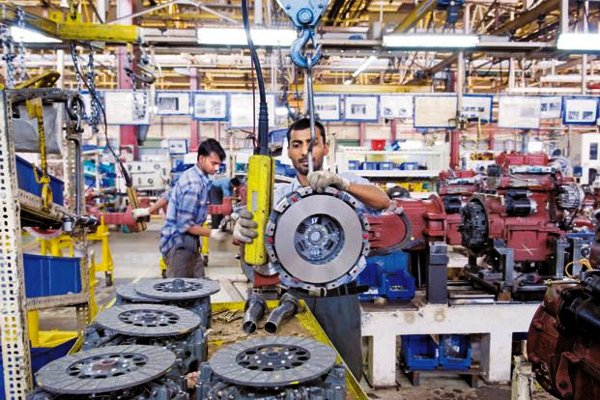The administration proposed on Tuesday to repeal the existing law governing special economic zones (SEZs) and replace it with a new law that would allow states to collaborate on the “Development of Enterprise and Service Hubs.” The current SEZ Act was passed in 2006 with the goal of establishing export hubs and increasing manufacturing in the country. However, with the enforcement of a minimal alternate tax and the adoption of a sunset clause for the removal of tax benefits, these zones began to lose their lustre. In purposes of customs regulations, these zones are treated as foreign entities.
Industry has repeatedly requested that the law’s tax benefits be maintained. Units in SEZs used to be exempt from paying income tax on export income for the first five years, 50% for the next five years, and 50% of the ploughed-back export earnings for another five years.
“The Special Economic Zones Act will be replaced with a new legislation that will enable the states to become partners in Development of Enterprise and Service Hubs,” Finance Minister Nirmala Sitharaman said while presenting the Budget 2022-23.
This would apply to all big current and planned industrial enclaves in order to maximise the use of available infrastructure and boost export competitiveness, she said. She also stated that the government will overhaul SEZ customs administration in order to boost ease of doing business. “We will also undertake reforms in Customs Administration of SEZs and it shall henceforth be fully IT driven and function on the Customs National Portal with a focus on higher facilitation and with only risk-based checks,” the minister said. By 30th September, this reform will be fully implemented.
Rajat Bose, Partner, Shardul Amarchand Mangaldas & Co, commented on the announcement, saying that replacing the SEZ Act with new law is a pragmatic step because it will combine these zones and Customs administration. According to Mahesh Jaising, Partner at Deloitte India, the new legislation will make it easier for states to collaborate with the industry. The government indicated in the 2016-17 Budget that income tax incentives for new SEZ units will be accessible only to those units that started operations before March 31, 2020. The government has awarded legal licences to 425 SEZ developers as of 27th January. 268 of these remained functioning as of 31st December, 2021.
These zones had attracted Rs 6,28,565.89 crore (US$ 84.09 billion) in investments and employed 25,60,286 people as of September 30, 2021. Exports from these zones increased by 25% to Rs 6.89 lakh crore (US$ 92.83 billion) from April to December current. In 2020-21, it was US$ 102.32 billion.
You may also like
-
Navigating India’s Skill Landscape
-
Trade Connect E-platform For Exports Is Single Window, Fast, Accessible And Transformational: Shri Piyush Goyal
-
India-us Working Together In Areas Like Critical Minerals, Supply Chains And Advanced Technologies: Shri Piyush Goyal
-
Cabinet Approves Health Coverage to All Senior Citizens of the Age 70 Years and Above Irrespective of Income
-
Cabinet Approves PM Electric Drive Revolution in Innovative Vehicle Enhancement (PM E-DRIVE) Scheme With An Outlay of ₹.10,900 Crore
